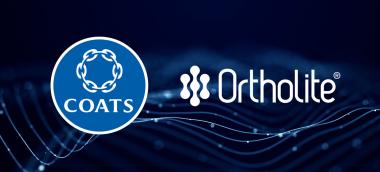Toyota Motor Europe: Participation in the AZL Joint Partner Project on thermoplastic pressure vessels
As the global shift toward sustainable hydrogen storage accelerates, thermoplastic composites are emerging as a transformative enabler. Building on its longstanding partnerships with leading companies across the composites value chain, AZL Aachen GmbH has launched its new Joint Partner Project “Thermoplastic Pressure Vessels – Benchmarking of Design -for-Manufacturing Strategies to Optimise Material Efficiency and Cost”. Among the first participants, Toyota Motor Europe underscores the strategic importance o f a comparative evaluation of design and manufacturing concepts for thermoplastic composite pressure vessels.
Driving Innovation in Thermoplastic Composites
Thermoplastic composites offer unique advantages for high-pressure vessel applications: automation, energy efficiency, recyclability, and reprocess ability. However, when thermoset -derived design principles are applied unchanged, the unique processing and performance capabilities of thermoplastics remain largely untapped.
AZL’s new project therefore takes a holistic approach — thermoplastic -driven vessel designs, manufacturing processes, and material configurations to maximise both economic and technical performance.
Dr. Martin Kerschbaum, Manager ME22 at Toyota Motor Europe, highlights the motivation behind Toyota’s participation :
“The usage of thermoplastic resins for manufacturing of high -pressure hydrogen storage vessels is of high interest for Toyota. This is due to potential advantages in terms of design, processing, performance, and circularity. It is essential to compare and evaluate the diverse options of design and manufacturing strategies for high -pressure vessels based on thermoplastic composite materials. Gaining additional insights into the key influencing factors on material efficiency, production scalability and realistic cost - structure scenarios is a crucial part of this process. AZL’s structured approach – a combination of know-how in applications, composite materials and production systems with expertise across the entire value chain – provides Toyota with valuable input for the further development of innovative storage systems.”
A Structured, Comparative Development Framework
The nine-month project brings together international industry partners to explore new thermoplastic vessel concepts. It is structured into three work packages:
WP1: Market & Technology Landscape – mapping state -of -the -art technologies, certification protocols, and relevant IP.
WP2: Conceptual Design & Manufacturing Strategies – developing vessel architectures optimised for thermoplastics, evaluating design variants, and defining production system concepts.
WP3: Performance, Cost & Production Benchmarking – quantifying material usage, recyclability, cycle times, cost per unit, and carbon impact to guide industrial decision -making.
From Knowledge to Competitive Advantage
By actively involving engineers and decision-makers from participating companies, AZL’s Joint Partner Projects combine technical depth with strategic relevance. Participants not only gain access to engineering results and benchmarking data, but also develo p in -house expertise — enabling them to communicate more effectively with customers, suppliers, and investors in the hydrogen and CNG markets.
“AZL’s Joint Partner Projects create trusted spaces for knowledge exchange.” says Philipp Fröhlig, Head of Industrial Services at AZL Aachen GmbH. “Our goal is to enable every participant to make well-founded technical and business decisions for their own product roadmap. Companies, independent of newcomers or established players benefit from collective benchmarking, faster learning by first–hand information, and a shared understanding of what drives efficiency and competitiveness in thermoplastic pressure vessel technologies.”
AZL’s Proven Expertise in Pressure Vessel Technologies
AZL has long been recognised as a leading industrial hub for composite pressure vessels. Previous Joint Partner Projects and R&D programmes have addressed hydrogen and CNG vessel design, filament and towpreg winding, and thermoplastic processing technologies. Within RWTH Aachen University’s ecosystem, AZL combines cutting -edge design, simulation, production and testing infrastructure — covering the full range of technologies for component development, prototyping and developing production systems. This expertise is further amplified through the AZL Partnership Workgroup “Composite Pipes & Vessels”, a dedicated platform for continuous collaboration, knowledge exchange, and networking across the global composites industry. The new project builds on this foundation, offering participants both short- term insights and long -term strategic connections.
Join the Consortium and Shape the Future
The next report meeting on 5 November 2025 will provide an update on concept benchmarking and early design results. Companies interested in hydrogen and CNG storage technologies are invited to join the consortium, gain access to the project findings, and collaborate directly on defining the next generation of thermoplastic vessel concepts. In addition to this Joint Partner Project, AZL offers individual R&D support, benchmarking studies, and strategic guidance for companies developing lightweight composite pressure vessels and related components.
Composites AZL Aachen GmbH project Toyota Motor Europe pressure vessels energy storage system thermoplastic composites
AZL Aachen GmbH






























